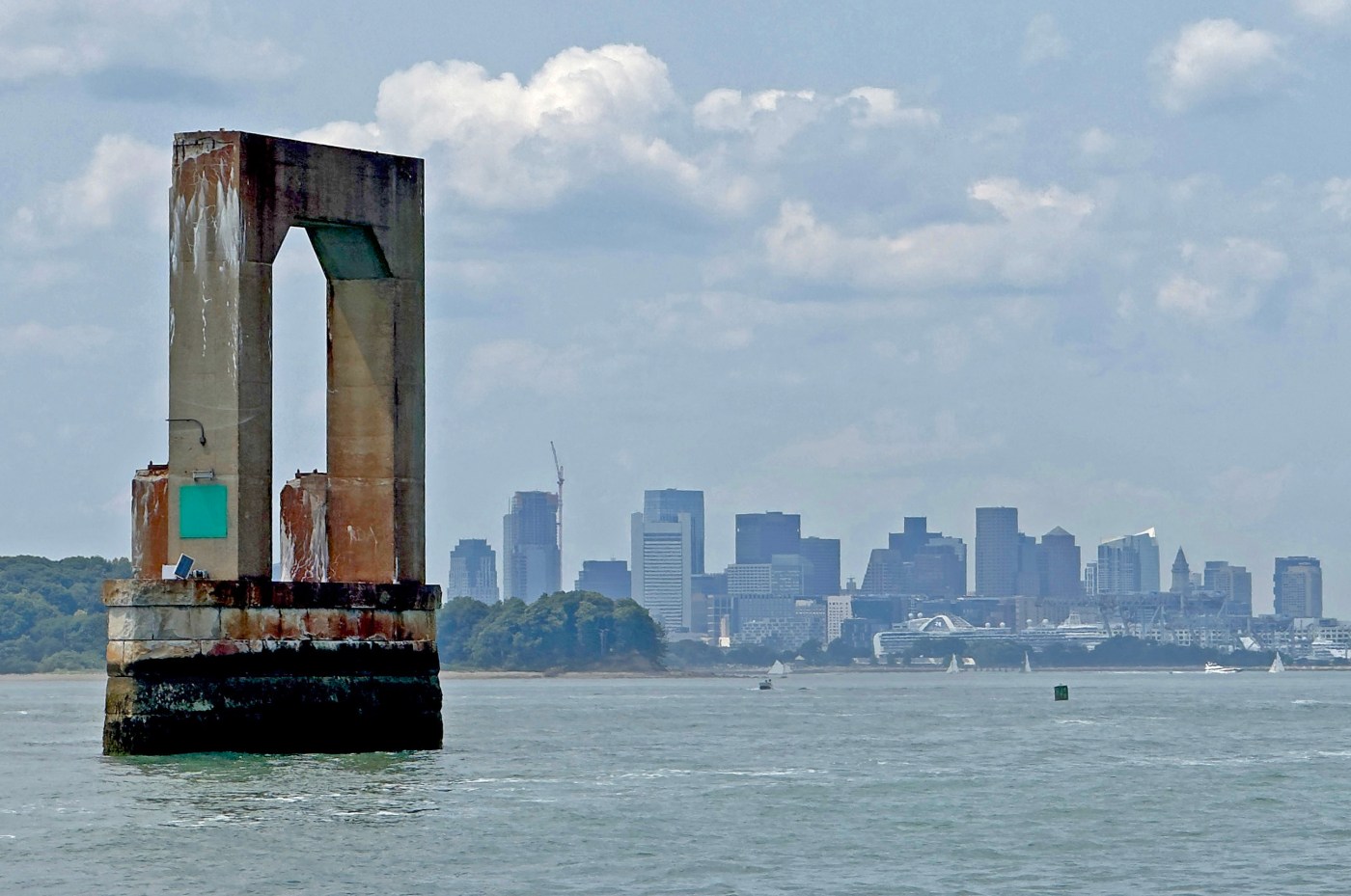
Boston wins MassDEP approval to rebuild Long Island Bridge to combat opioid crisis
The state has cleared the way for Boston’s Long Island Bridge to be rebuilt.
MassDEP rejected an appeal by Quincy’s mayor and upheld its prior issuance of a state waterways permit that allows the city to move forward with plans to build a bridge out to a future 35-acre addiction recovery campus on the island.
Bonnie Heiple, commissioner of the Massachusetts Department of Environmental Protection, issued a final decision this week to affirm the draft Chapter 91 permit the agency doled out to the City of Boston in August 2023. Her ruling, she said, is her “final decision.”
“Quincy has failed to demonstrate by a preponderance of the evidence and the governing legal requirements that the draft license issued by the Department for the construction of proposed bridge replacement project was issued in violation of Chapter 91 and the authorizing regulations,” Margaret Stolfa, the presiding officer, wrote in her 77-page recommended final decision this fall.
The permit, which ensures projects in waterways meet public-access requirements, was celebrated by Mayor Michelle Wu upon its issuance as the last “substantive review” needed in Boston’s years-long plan to tackle the opioid epidemic by rebuilding the Long Island Bridge out to a recovery campus.
It was quickly challenged, however, by the mayor on the other side of that prospective bridge, Quincy’s Thomas Koch, who says recreating that access point to Long Island will exacerbate traffic and safety issues.
He has already appealed the permit with MassDEP, telling the Herald in 2023 that the “City of Quincy was going to do everything in its power to keep the city of Boston from building that bridge.”
Quincy’s appeal tried to establish that the bridge wasn’t water-dependent, as required by Chapter 91, and would not serve the general public, but rather a select population on Long Island, along with challenging the “high-water mark” and non-compliance with local zoning requirements, among other issues.
The MassDEP disagreed, saying that the project as proposed was in compliance with Chapter 91, would provide greater benefits than detriments to the public, and was not subject to local zoning ordinances and bylaws, given that the bridge is “not located on private tidelands or filled commonwealth tidelands.”
“In sum, the proposed bridge reconstruction project is an infrastructure crossing facility that serves a proper public purpose and provides greater benefits than detriment to the rights of the public in tidelands,” Stolfa wrote, “and qualifies as water-dependent because it requires direct access to tidal waters in order to connect the existing transportation on the mainland to the existing transportation infrastructure on Long Island.”
In Boston, Mayor Wu’s office on Friday lauded MassDEP’s “important decision” to award the key permit, while Mayor Koch’s office in Quincy said it was already planning to appeal the matter to Massachusetts Superior Court.
“With this important decision by the Commonwealth to award the Chapter 91 license, the city has cleared a significant milestone on the path to rebuild the Long Island Bridge and support the recovery needs of our region,” Wu spokesperson Emma Pettit said in a statement.
Chris Walker, chief of staff to Mayor Koch, said Quincy plans to explore every avenue possible to prevent the bridge from being built, and continues to push an alternative, to establish ferry access and transportation to a Long Island campus.
“We plan to appeal,” Walker told the Herald. “We feel we have an abundance of evidence that we will present to the court that shows, as we’ve been saying from the beginning, this bridge plan is fundamentally flawed in a number of ways.”
Upon the Chapter 91 permit’s issuance in August 2023, when violence and drug use were spiking at Mass and Cass, the mayor and her team said it would allow for a new bridge and the first phase of the recovery center to be built within four years.
At the time, Wu said reconstruction would be relatively “quick,” with crews working off the piers and pieces still in place from a former bridge that was closed in 2014 for safety reasons.
Related Articles
Boston Police cite communication issues with feds for immigration detainer discrepancies
Battenfeld: Ed Flynn passes on mayor’s race, removing one obstacle to Michelle Wu’s reelection
Boston City Council kills ethics committee push amid Fernandes Anderson corruption charges
ICE blasts Boston: Feds say BPD refused 198 immigration detainer requests for ‘egregious crime’ in 2024, not 15
Massachusetts Gov. Healey wants to ‘abolish’ tenant-paid broker’s fees, as Boston City Council eyes similar change
On Friday, Mayor Wu’s office acknowledged that potential appeals to the Chapter 91 permit and the two additional permitting steps required from the Massachusetts Office of Coastal Zone Management and the U.S. Coast Guard has made it “difficult to determine” when the city would be cleared to begin construction.
While the city cleared out the encampments at Mass and Cass in late 2023, the open-air drug use, violence and filth has spread into other neighborhoods, leading residents to gripe at public meetings about the decline in their quality of life.
Mayor Wu’s office said the city, in seeking to determine what the Long Island Campus could be, is exploring a “range of potential services to support those with substance use disorder, including services for unsheltered individuals.”
“While the ongoing work to finalize the bridge permitting continues,” Pettit said, “the city remains intensely focused on public safety, building recovery pathways, and the pressing quality of life issues in our neighborhoods.”

